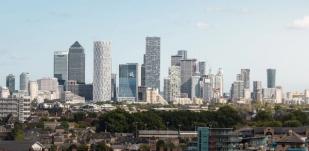Budget 2023: What Does It Mean For Businesses?
As Jeremy Hunt's Spring Statement approached, all the talk around the contents of the iconic red briefcase was of a slimmed-down Spring budget with no tax cuts. After much media speculation, how would the chancellor steady the economy, reinforce public finances and regain economic credibility for the government following the damage inflicted by the Truss administration?
This isn’t Mr Hunt’s first rodeo. So, first, let’s remind ourselves of the back-to-back fiscal statements that dominated headlines last autumn.
The Autumn Statement
In September, then Chancellor of the Exchequer Kwasi Kwarteng and former Prime Minister Liz Truss announced the infamous mini-budget entitled "The Growth Plan''. Contained within was a raft of short-lived tax cuts - leaving a £60bn black hole in public finances - that sounded the death knell for the pair. The erstwhile chancellor was issued his P45 soon after - replaced by Mr Hunt - and the PM fell on her sword less than a week later.
This triggered another Tory leadership contest that Rishi Sunak won at a canter, before announcing an autumn financial statement in a bid to rectify the mess caused by the previous administration. Barely eight weeks after the disastrous mini-budget, Mr Hunt outlined tax rises and spending cuts worth billions of pounds aimed at mending the nation's finances.
Budget 2023
Last March, then chancellor - now PM - Rishi Sunak announced his Spring Statement against a backdrop of rising fuel, energy and food costs, and the war in Ukraine - forces that still weigh on the economy today. Fast forward 12 months and the current chancellor - the nation’s fourth since June 2022 - also had to contend with the fallout from intense political instability, the threat of recession, and the need to achieve economic stability.
Mr Hunt said the domestic economy is "proving the doubters wrong" and will avoid recession. He also used his first full budget announcement to Parliament to reassure the nation that the government's plan for the economy was "working" as he announced a "budget for growth".
So, how did the chancellor’s budget play out for UK businesses? Here is a summary of the main announcements.
Announcements from the Spring Statement that will affect businesses
Corporation tax rise
The chancellor confirmed that corporation tax will rise from April 2023 - but also announced a scheme that will allow organisations to reduce the amount they pay if they invest in their businesses.
Despite pressure from some of his colleagues to scrap plans to raise the rate of corporation tax from 19% to 25%, the chancellor confirmed the hike would go ahead in April for businesses with more than £250,000 in profits. He estimated that only 10% of UK businesses would pay the full 25% rate.
“Our corporation tax did not incentivise investment as effectively as countries with higher headline rates; the result is less capital investment and lower productivity than countries like France and Germany,” the chancellor said.
More investment for businesses
The government hopes the creation of a new investment zone scheme will stimulate investment for businesses in England over the next five years.
Each of the eight zones will receive £80m to use for skills, infrastructure, tax reliefs, and business rates retention.
The eight locations eligible to host a zone: West Midlands, Greater Manchester, North East, South Yorkshire, West Yorkshire, East Midlands, Teesside, and Liverpool.
New investment allowance for businesses
A new allowance means businesses will be able to deduct investment in new machinery and technology to lower their taxable profits immediately.
There will also be a new tax credit for small and medium-sized enterprises (SMEs) that spend 40% of their expenditure on research and development.
Annual investment allowance increased
The annual investment allowance for small businesses has been increased to £1m, allowing 99% of them to deduct the full value of their investment from each year's taxable profits.
‘Full expensing' was also announced over the next three years, meaning all money invested in IT equipment by a small business can be deducted in full from taxable profits.
Fuel duty frozen
The 5p cut to fuel duty on petrol and diesel, due to end on 31st March, has been frozen for another year until April 2024. Fuel duty was widely expected to rise with inflation in April, hiking the cost of fuel by 7p a litre.
News of the freeze was welcomed by industries that rely on the transportation of goods and services - both domestically and internationally - and those that require fuel for their daily operations. Notably: agriculture, shipping, export/import, manufacturing, and energy.
Energy price cap
The energy bill price cap will still go ahead in April against the backdrop of a cost of doing business crisis.
Businesses will receive a discount on wholesale prices of gas and electricity, instead of a fixed tariff. Called the Energy Bills Discount Scheme, it’s scheduled to operate until 31st March 2024.
Reduced paperwork for international traders
The chancellor announced a reduction in paperwork for businesses that conduct international trade. These companies will also be given longer to submit customs forms under the streamlined rules. Great news for manufacturers who have complained about Brexit-induced border delays.
Reforms for start-ups
The chancellor hinted at major reforms to the financing of start-ups that will be unveiled in the Autumn Statement later this year - benefitting fledgling businesses in sectors like tech and fintech.
The reforms will aim to push investment from pension funds and make the London Stock Exchange a more enticing place to list.
Mr Hunt also revealed policy reforms in medicine and artificial intelligence, to swell investment and innovation in both sectors.
OBR inflation forecasts
Although the rate at which prices are rising has eased slightly, inflation remains close to a 40-year high. To cool red-hot inflation, the Bank of England has hiked interest rates to 4% - the highest level for 14 years.
The Office of Budget Responsibility (OBR) - established by the UK government to provide independent economic forecasts and independent analysis of the public finances - published a fresh forecast, predicting that inflation will fall to 2.9% by the end of 2023. Such a sharp drop would take it well below half the current level - and help to reduce the cost of doing business.
Rishi Sunak said halving inflation by the end of the year is one of the government's five key pledges.
Make international payments with Clear Treasury
The pound soared against the euro as Mr Hunt announced a raft of measures designed to boost UK economic growth. With the recession threat over and inflation forecast to fall sharply, a repeat of last September's volatility - when Kwasi Kwarteng announced uncosted spending plans - was avoided.
Proactive businesses don’t cross their fingers and hope the pound will remain firm; they understand that exchange rates are in a constant state of flux and take steps to prevent this risk from driving up the cost of their international payments.
Clear Treasury specialises in providing businesses across industries with clarity on the tools available to mitigate their exposure to currency risk. Exchanging money into another currency and transferring it overseas can be daunting and confusing. Aware of this, we use our knowledge and experience to cut through the jargon and provide you with a friendly and personal service.
When you become one of our valued clients you will be assigned a personal account manager. In addition to helping you benefit from quick, easy, and secure transfers, they can outline the tools available to mitigate the impact of currency risk on your cross-border payments, including forward contracts and stop losses.
Open your free Clear Treasury account today for quick, secure and cost-effective international payments.
Related Articles
The Autumn Statement: What it Means for Your Business
New Chancellor Jeremy Hunt provides his Autumn Statement package to calm the waters on the back of a frantic political landscape, and a challenging British economy now, and into 2023.
Read more
Weathering the Economic Storm: What's Ahead for Businesses?
From controversial tax cuts and ministerial sackings to policy U-turns and calls for a general election, turmoil in Westminster - and the UK economy - is plaguing the pound.
Read more
Spring Statement 2022: What it means for businesses
Chancellor Rishi Sunak has announced what he believes are a package of measures to help businesses weather the perfect storm of increased National Insurance payments and rising energy prices.
Read more


